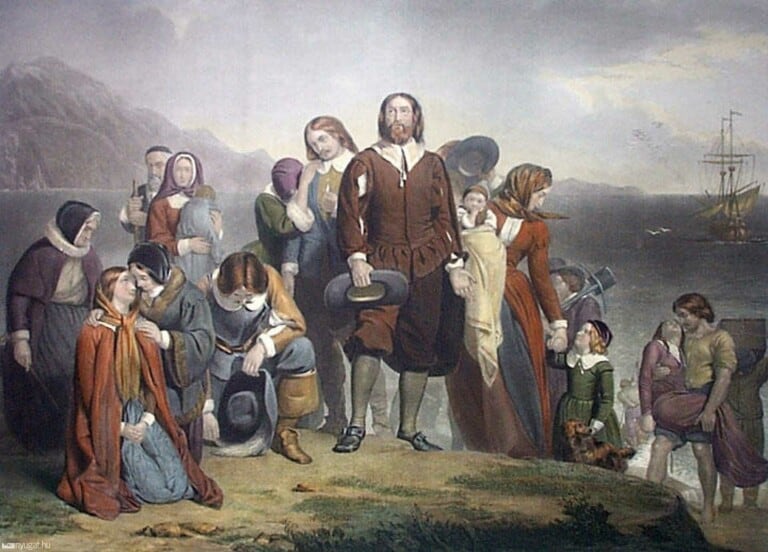The Puritan New World vision in the longer schemes of things
English Puritans can be divided into several groups. Most of the Puritans remained in England. They accepted the principle of Oliver Cromwell’s Commonwealth, with the Separatists (no affiliation with authority and the English Protestant Church). They were persecuted and many of them had to run away and come to the New World.
To many Puritans, Christopher Columbus’s passage into America was one of the most important historical events as the sign of a bigger historical destiny, as well as Gutenberg’s printing press (1456) and the Protestant Reformation: 3 events, at the same time geographical, textual and religious, marking the beginning of a New World.
Gutenberg’s invention was particularly important for the New England Protestants for their frequent use of texts (a major means of communication). The Puritan society was a unique form of society in the sense that they defined their identity essentially through texts.
Throughout the 17th century, colonial identity was the product of two things:
- Literature or texts
- And concrete movement in social and geographical space.
This particular form of identity can be seen through different aspects of literary expression: the Puritans used these aspects as sermons, declarations, covenants, controversies and statements of purpose.
Therefore, the lasting effect of the printing press on colonial America is to be found in its contribution to the emergence of a national identity based first and foremost on language and writing.
It was first through publication that America declared to the world its identity as a nation and through an effect of discourse she defined proclaimed and projected its past, its present, and its future.

